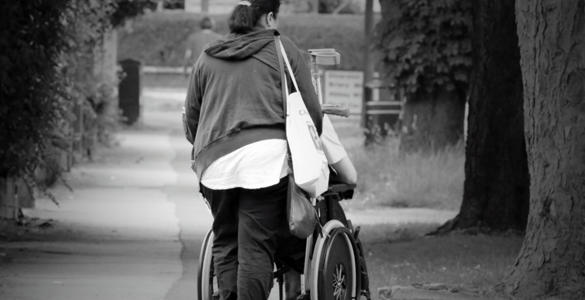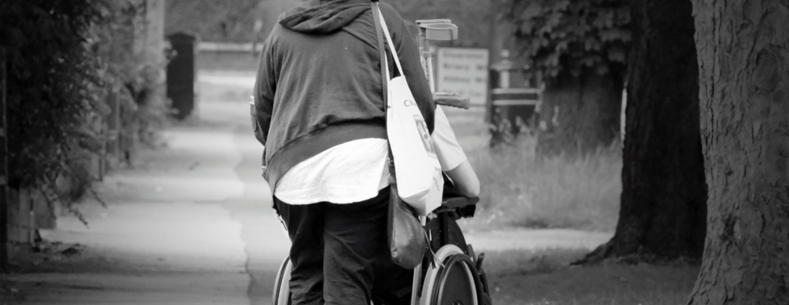On Tuesday 31 January 2017, Assembly Members will be debating the Annual Report on Equality 2015-16. The following article (6 June 2016), which gives an overview of the state of human rights and equality in Wales, is being re-posted in advance of this.
Is Wales a fair country? And what are the main human rights and equality issues needing to be addressed in the Fifth Assembly?
It is tempting to think that human rights are less significant in a developed country like Wales. But these universal rights are intrinsically linked to the life chances of every person, regardless of where they were born. With significant inequalities to be addressed, and the backdrop of austerity still affecting public services, the Fifth Assembly will be pivotal in determining whether Wales becomes more or less equal. Inequality in Wales In many ways, Wales is still an unfair country. There are some substantial inequalities in education, health, employment and income levels that may influence policy and law-making in the next five years:
- young people aged 16-24 are four times as likely to be unemployed as those aged 35-54;
- some people are disproportionately likely to be paid less than the average wage. These include: young people (who earn £6.50 per hour compared with the average pay of £11.20 for 35-44 year olds), ethnic minorities (earning on average 50 pence less an hour than white people), and women (whose annual average earnings are £16,412 compared with men’s average of £22,921);
- certain children are significantly more likely to have lower than average educational attainment. Only 13% of Gypsy / Roma children, and 17% of both looked-after children and those with special educational needs, achieve five or more GCSEs at grades A*-C;
- less than half of disabled people are employed;
- just over three-quarters of reported hate crimes are racially motivated, with black people most likely to be victims;
- around 38% of ethnic minority households and 31% of children live in poverty; and
- there continues to be a lack of diversity in leadership roles, from politics to the private sector. In some areas representation is getting worse, with even less diversity in decision-making than there was a decade ago.
Creating a distinctive agenda for Welsh human rights
The Fifth Assembly will be critical in determining how human rights are prioritised and addressed in Wales. Decisions made by the new Welsh Government will have an impact on the dignity, respect, fairness, safety and protection of the population. Under devolution law, Welsh law has to adhere to international treaties, including the European Convention on Human Rights (ECHR). In the past, Welsh Governments have taken a different approach to the UK Government on human rights. Will this continue in the future? For example, the Rights of Children and Young Persons (Wales) Measure 2011 places a duty on the Welsh Government to take account of (or ‘pay due regard to’) the United Nations Convention of the Rights of the Child (UNCRC). Similarly, the Social Services and Well-being (Wales) Act 2014 places a duty on public bodies to take account of the UNCRC and the UN Principles on Older People. There are no equivalent, specific provisions requiring public authorities to ‘pay due regard’ to the UNCRC in other UK law. Welsh experts agree that human rights should be seen as a tool for improving people’s lives, rather than a retrospective remedy. Some people see the 'due regard’ duty as a meaningful way of improving policy and practice. For others, it reinforces human rights simply as a process, or a ‘tick box’ exercise. It will be interesting to see if the requirement to pay ‘due regard’ to international human rights treaties is used in future Welsh law and policy.
Human rights and equality issues for the Fifth Assembly
Other key equality and human rights issues likely to arise in the Fifth Assembly include:
- gender equality: including representation, pay gaps, economic participation and violence against women;
- poverty: with high levels of poverty in Wales, and certain groups of people far more likely to be poor, low income and the lifelong disadvantages it brings is fast becoming a human rights issue;
- physical punishment (smacking): the UN Committeee on the Rights of the Child will soon make recommendations as a result of its examination of progress on children’s rights in Wales. Smacking has been a recurring theme in its previous reports, and the debate is almost certain to arise again;
- hate crime: particularly the rise of Islamophobic and anti-Semitic hate crime; and
- the protection of people at risk of abuse: including asylum seekers, refugees, older people in care, disabled people and looked-after children.
Human rights are a key part of both the devolution settlement, and the UK constitution. The UK Government has promised to replace the Human Rights Act 1998 with a British Bill of Rights and ‘curtail the role of the European Court of Human Rights’. The proposals have been controversial and much delayed. Although there are ‘no plans’ for the UK to leave the European Convention on Human Rights, a Bill of Rights would have huge implications for Wales. If new legislation is brought forward, its impact on human rights protections and how the new Welsh Government responds will likely determine whether Wales becomes more or less equal.
Key sources
- Cardiff University, Women Adding Value to the Economy (WAVE) research (website)
- Equality and Human Rights Commission in Wales, Is Wales fairer? (2015)
- Equality and Human Rights Commission in Wales, Who runs Wales? (2014)
- Equality and Human Rights Commission in Wales, Human rights roundtable report (2014)
- Research Service, A British Bill of Rights: Implications for Devolution (2014)
- WAVE, Equal Pay Barometer (website)
Article by Hannah Johnson, National Assembly for Wales Research Service






